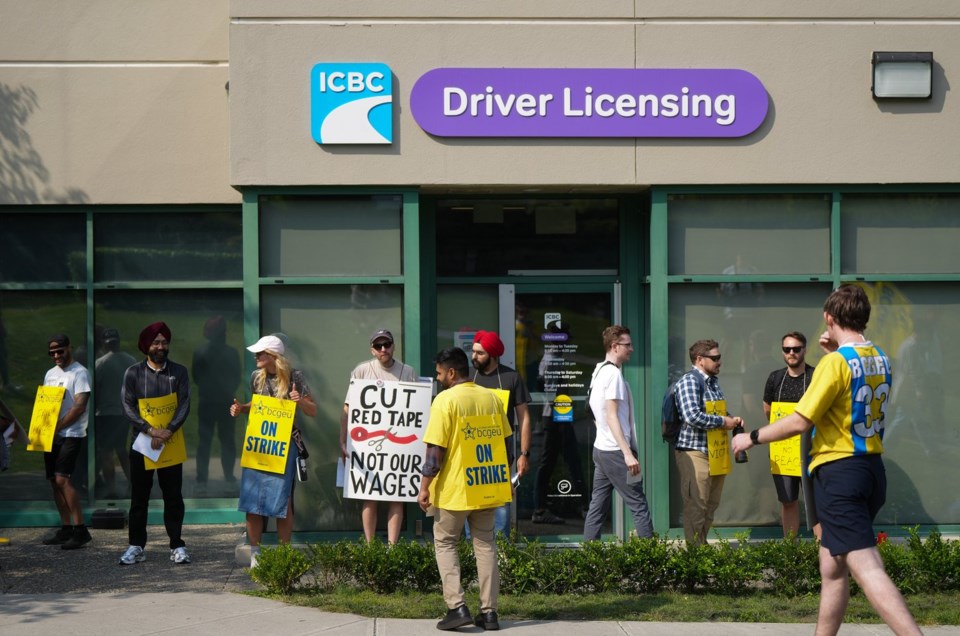The range of British Columbia public service staff that could potentially be impacted by job action that began this week is wide, from scientists and social workers to liquor and cannabis distribution and retail staff.
But a labour expert says the BC General Employees' Union's actions have so far been limited to allow for an "escalating strategy" to force the government's hand in negotiations.
Among the few visible impacts on the second day of the job action that began on Tuesday is the cancellation of driver licensing services at a single Insurance Corporation of B.C. services centre in Surrey.
ICBC said Wednesday that it had to cancel all appointments at its Guildford location, but drivers could rebook online or visit its other Surrey location on 78th Ave.
The union is seeking better wages for its public-service membership of about 34,000, but the union has only called up about 2,000 to hit picket lines, among them the Guildford ICBC centre.
McGill University associate sociology professor Barry Eidlin said that gives the union room to ramp up strike action if need be.
"If you take all the other workers who are eligible to go out all at once, you've kind of shot your shot, right? And there's nowhere, no way to sort of ratchet up from there," he said.
"You can't go to 11, right? So it's not Spinal Tap."
Eidlin said B.C. public-sector workers, like workers across the country, have been dealing with decades of wage stagnation and a post-pandemic spike in the cost of living, and they see now as the time "to start making up for lost ground."
"In B.C., the cost of living crisis is quite acute." he said. "So that's really what's at stake here is that this is sort of their chance now."
BCGEU President Paul Finch said last week that when talks broke off, the union had been seeking a 4 per cent wage increase in the first year of a new contract, then 4.25 per cent in the second year, plus a cost-of-living allowance.
The government's negotiating framework is the so-called balanced measures mandate that last week resulted in a 3.5 per cent wage increase over two years for hospital and other workers.
Eidlin said he was unaware of what the province had last offered the BCGEU before the strike action, but it's not "unheard of" for provincial NDP governments to take a hard line against public sector workers.
Eidlin said it comes at a higher political cost for a party that is "structurally" tied to organized labour versus Liberal or Conservative governments, and public opinion has shifted toward support for striking workers, as seen in the recent strike by Air Canada flight attendants.
"Support for striking workers is just way higher than it used to be," he said.
The union said Wednesday that many public-sector workers had resorted to a second job, eight out of 10 had contemplated leaving their jobs due to low wages, and half lived "paycheque to paycheque."
"Meanwhile, government keeps adding more managers and signing costly private contracts instead of investing in the front lines," the union said in a statement on social media.
Finance Minister Brenda Bailey said Tuesday that the province was seeking a "fair agreement" with the union while the B.C. is facing "very significant fiscal headwinds."
This report by The Canadian Press was first published Sept. 3, 2025
Darryl Greer, The Canadian Press




